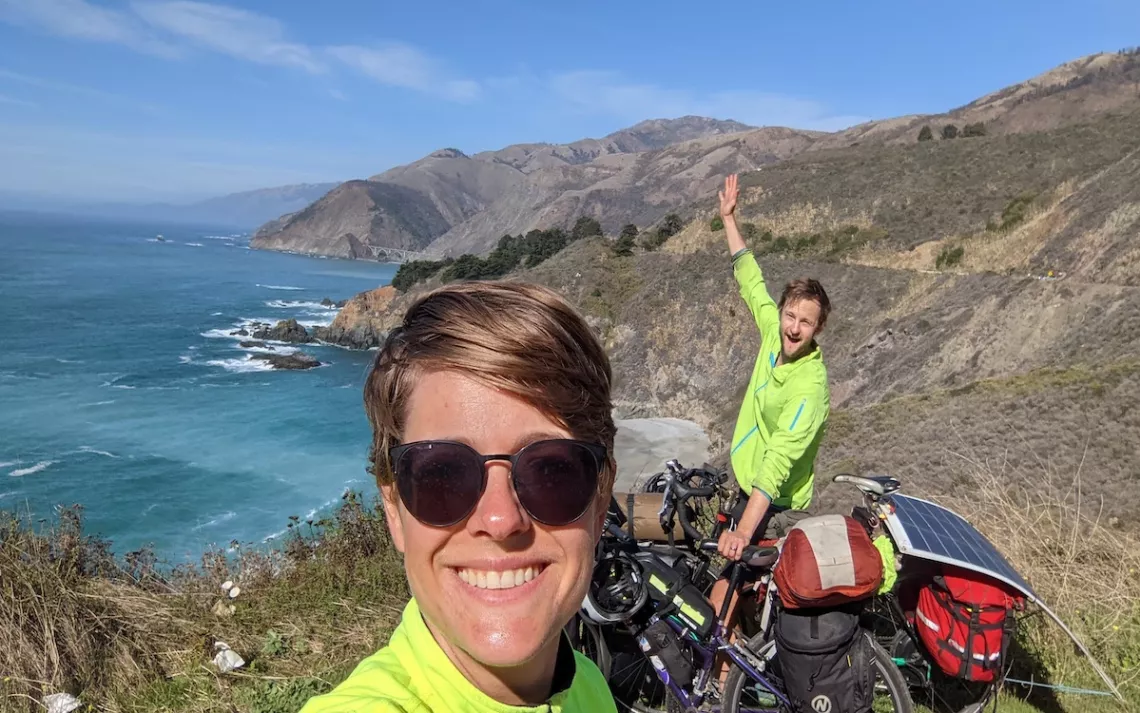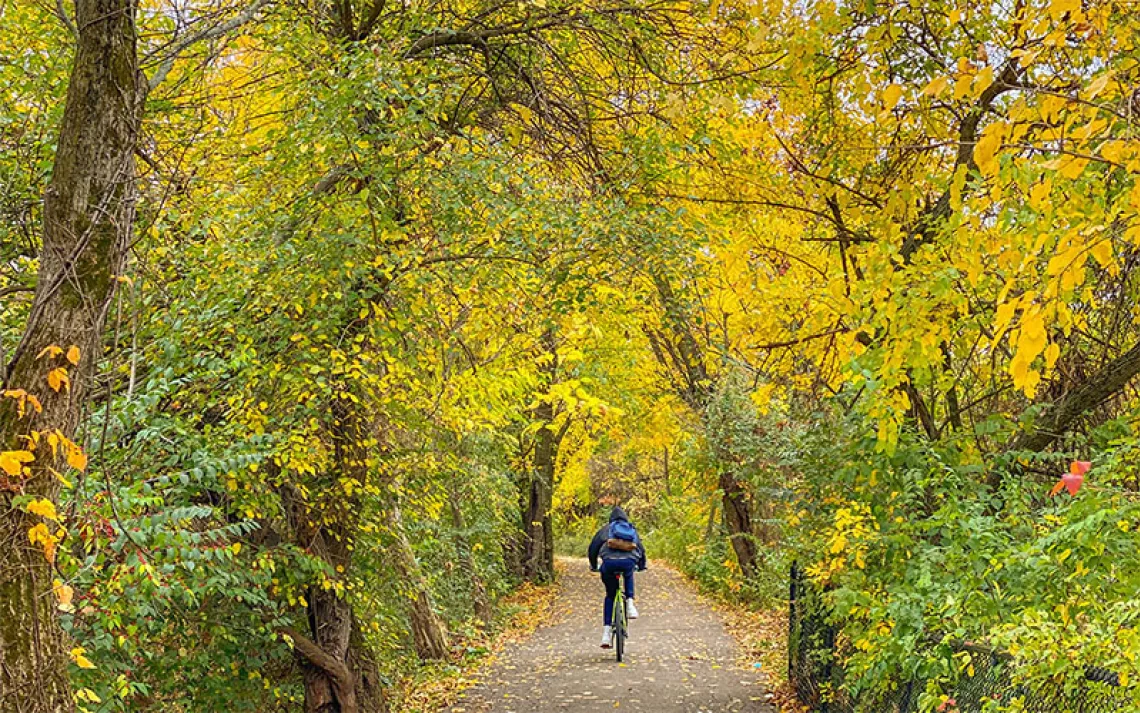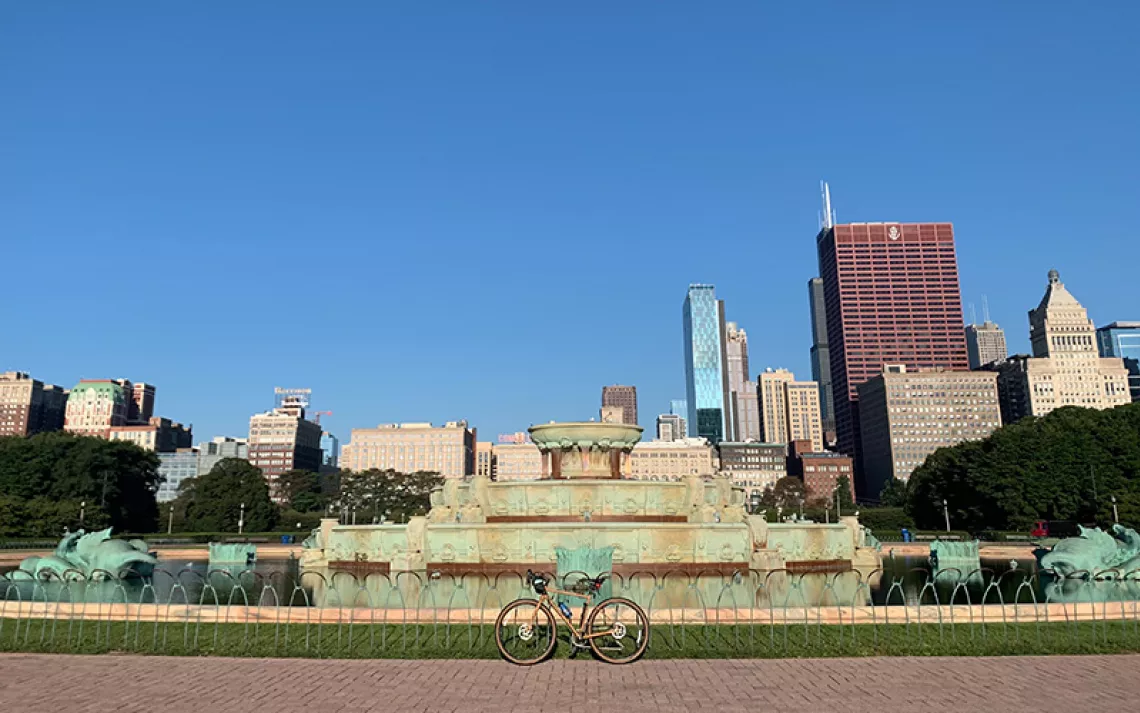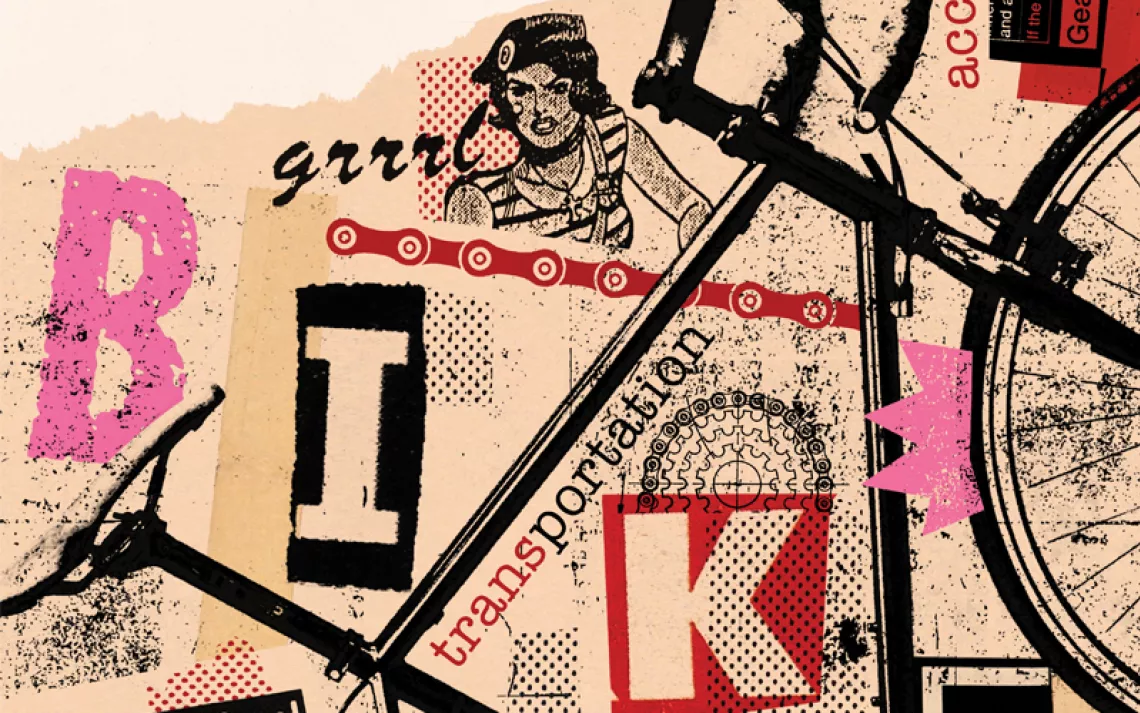These Americans Quit Flying for the Planet
What they learned after taking the #FlightFree pledge

Claire and Will Stedden pose for a selfie while cycling the California coast. | Photo courtesy Claire and Will Stedden
The honeymoon was a long time coming for Will and Claire Stedden of Madison, Wisconsin. After marrying in 2017, the pair waited until 2020 to take a celebration trip. They wanted something adventurous and memorable with one big stipulation: In 2019, the Steddens took the Flight Free Pledge, swearing off non-emergency air travel for good.
Before moving to Wisconsin, the Steddens lived in California, with persistent drought and the sight of wildfire ash raining from an orange sky. “I think that’s what really drove it home for me,” Claire said. “Like, OK, more needs to change. And I think [quitting air travel] is the biggest single thing you can do to reduce your carbon.” With flights off the table, the two planned a five-month tour of the United States by Amtrak and solar-powered e-bikes. They cycled the Pacific coast, and when they wanted to cover even more ground, just rolled their bicycles onto a train.
The Steddens were two of the 444 Americans who took a Flight Free 2020 Pledge in the first year that Flight Free USA, a partner campaign to efforts launched in Europe, started the challenge stateside. For 2021, Flight Free USA expanded to three pledge options: Participants can commit to making the year’s vacations flight-free, quit all air travel for one year, or forgo flying for life. Some 365 Americans have taken the 2022 pledge to date.
“We wanted the conversation to be about being aware—conscious of the climate impacts of flying,” said Ariella Granett, of Berkeley, California, an architect and the cofounder of Flight Free USA. “It’s taking a personal action to fly less and to fight for systemic change to make it easier to fly less.” Granett founded the US chapter after examining the climate impact of her own family’s choices. “It was the simplest and least expensive thing I could do to lower our family’s footprint,” she said. Granett has given up flying for good.
Aviation accounts for 2.4 percent of global carbon emissions, according to a 2021 paper published in the journal Environmental Research Letters. Throw in contrails and nitrous oxide emissions and planes are responsible for 4 percent of human-caused global warming. Such emissions are unevenly distributed. An estimated 80 percent of the world’s population has never taken a flight; just 1 percent of people are responsible for over half the total impact of commercial aviation, according to a 2020 paper in the journal Global Environmental Change.
Since a small fraction of people do the majority of air travel, the impact of any given journey is larger than overall emissions statistics might suggest. The aviation-reduction advocacy group Stay Grounded calculates that avoiding one round-trip journey between Madrid and Rio de Janeiro brings more significant carbon savings than the choice to spend a year living car-free and vegan, wearing only used clothes, while living in a super-efficient house equipped with a solar array.
But individual action, Granett agrees, is no substitute for systemic change. “If people are coming from the direction of systemic change, then that’s absolutely necessary, and that is the bigger picture,” she said. Granett is also part of an effort opposing a proposed expansion of Oakland International Airport. “But the ‘system’ is a group of people. Ultimately, it’s going to come down to the same conversation of ‘How do we get our whole world to be within the carbon budget to not lose humanity?’”
Dan Castrigano, a climate educator who quit flying in 2019, agreed. “The perpetual question is individual action versus systemic change, and they’re not mutually exclusive,” he said. Castrigano has worked in his home of Burlington, Vermont, to protest airport expansion. But he also sees the choice not to fly—and talking widely about that choice—as an opportunity to shift the culture. “They reinforce one another, both taking individual action and collective organizing.”
Going flight-free comes with a cost for most Americans. In the United States, families may live thousands of miles apart. Many lack the flexibility for more time-consuming alternative trips by train or bicycle. Sometimes not flying means not going, missing out on the birthdays, weddings, and anniversaries that waymark our shared lives.
Going flight-free also comes with surprising rewards, however. Castrigano traveled from Vermont to Illinois for a wedding by train and savored the journey’s slower pace. He has also gone on weeks-long bicycle vacations with his wife. “It really is joyful,” he said. “The sense of shifting biomes, as you go down the coast or bike into a forest, is really something that can’t be replicated on an airplane, where you go into a metal tube then are dropped somewhere.”
Betsy Thagard of Birmingham, Alabama, took her first Flight Free Pledge in 2021, committing to take all her vacations on ground level. She began road-tripping in an electric car, sparking connections in unexpected places.
“I’d put American flag stickers on my Tesla and people would stop me at truck stops where I was parked and ask me about my electric car,” said Thagard, a semi-retired realtor who eschews interstates for US highways, preferring small towns. She recalled the unexpected beauty of Nebraska scenery and chance conversations atop the Cahokia mounds of St. Louis. “I don’t think I’m making a big sacrifice. I think I’m discovering other interesting things that I otherwise would not have seen or known,” she said.
And the honeymooners? They had a ball on their grand adventure by rail and e-bike.
Taking the train across the country offered a new intimacy with landscape. Traveling from California to Chicago, they saw the country unfurl from an Amtrak window, views shifting with each passing hour. “You see the desert, then it changes to deciduous trees, then you go up the Mississippi,” said Claire Stedden, who works in sustainable agriculture at the University of Wisconsin. “You get to see a lot of the country traveling by train instead of plane.”
Will agreed. “That turned out to be the most amazing road trip we’ve ever had, by a long shot,” he said. Together, the Steddens founded the Solarpunk Travel Cooperative, whose website offers resources for other would-be e-bike travelers. When the trip ended, Will decided to change careers and now works for e-bike sharing program Madison BCycle. “Doing that bicycle ride—it was kind of life changing.”
 The Magazine of The Sierra Club
The Magazine of The Sierra Club



